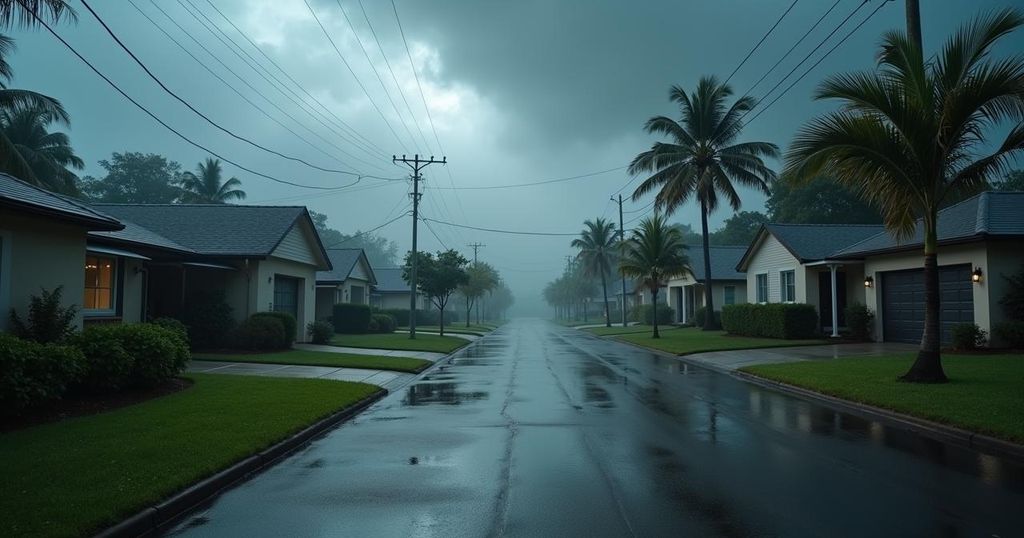Impact of Climate Change on Hurricanes: The Cases of Helene and Milton

Climate change has intensified Hurricane Helene, increasing its rainfall and winds significantly. A new study indicates that similar effects are expected for Hurricane Milton. These findings highlight the alarming connection between human activity and severe weather, underscoring the need for urgent climate action to address the escalating risks of hurricanes and flooding.
Recent studies indicate that climate change significantly intensified Hurricane Helene, contributing to a 10% increase in rainfall and an 11% surge in wind speeds. The research, released by World Weather Attribution, highlighted that Helene’s wind speeds were boosted by approximately 13 miles per hour due to warmer air and ocean temperatures that were 3.6 degrees Fahrenheit above average. As Hurricane Milton threatens to impact Florida, experts suggest a similar influence of climate change on its intensity. This finding underscores a troubling trend: the continued burning of fossil fuels is likely to result in increasingly severe hurricanes, leading to catastrophic flooding and destruction far beyond coastal areas. Hurricane Helene’s impact was devastating, with record storm surges and high winds causing widespread damage. The hurricane claimed over 230 lives and left millions without critical resources. The storm deposited over 40 trillion gallons of rain in affected regions, a volume that would have been lessened without human-induced climate changes. The frequency of hurricanes at this intensity has increased, now occurring approximately every 130 years, yet they are 2.5 times more likely today due to existing climate conditions. Both studies analyzed various climate models to evaluate the effect of warming on Hurricane Helene, providing vital insights into future storm patterns if climate change continues unabated.
The connection between climate change and extreme weather events, especially hurricanes, has gained increased attention in recent years. Scientific organizations have been investigating how the warming of the planet influences the intensity and frequency of such storms. The findings presented by the World Weather Attribution are significant as they not only demonstrate direct links between climate change and individual hurricanes but also call for immediate action to mitigate further temperature increases that exacerbate these natural disasters. Understanding this relationship is crucial for policy-making and disaster preparedness, as it sets the stage for discussions regarding climate resilience and the need for sustainable energy solutions to reduce reliance on fossil fuels.
In conclusion, the alarming findings related to Hurricane Helene and the anticipated development of Hurricane Milton illustrate the profound impact of climate change on the severity of storms. The research clearly shows that warming temperatures have directly contributed to the destructive potential of hurricanes, leading to unprecedented rainfall and wind speeds. As climate change continues to destabilize weather patterns, it is imperative that society re-evaluates its energy consumption habits and seeks alternatives to fossil fuels in order to mitigate future climatic threats and enhance preparedness against increasingly likely natural disasters.
Original Source: www.ksnt.com






